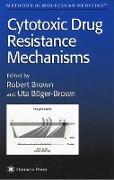Cytotoxic Drug Resistance Mechanisms
BücherAngebote / Angebote:
There is now a range of cytotoxic drugs that have considerable clinical usefulness in producing responses in tumors and even, in a small proportion of cases, cure. However, the acquisition of drug resistance is a major clinical problem and is perhaps the main limiting factor in successful treatment of cancer. Thus, a tumor initially sensitive to chemotherapy will, in the majority of cases, eventually recur as a resistant tumor, which will then progress. Much of our understanding of drug resistance mechanisms comes from the study of tumor cell lines grown in tissue culture. We now understand many of the - lecular mechanisms that can lead to a cell acquiring resistance to antic- cer drugs, however, we still do not know which mechanism(s) are those most relevant to the problem of clinical drug resistance. Indeed, given that many of the cytotoxic anticancer drugs were discovered by random screening, it is - clear what features give a clinically useful anticancer drug a sufficient the- peutic index to be of value. The aim of Cytotoxic Drug Resistance Mechanisms is to provide pro- cols that are appropriate for examining the mechanisms of cellular resistance to anticancer cytotoxics in human tumor samples. Tumor cell lines have been enormously useful as experimental models of drug resistance mechanisms, however they have limitations and we need to address the relevance of such mechanisms in patients' tumors. Examining drug resistance in tumors is much more problematic than in cell lines.
Folgt in ca. 15 Arbeitstagen
